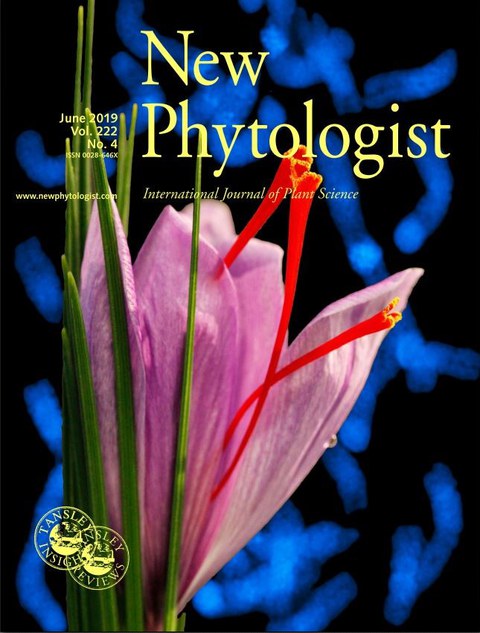Prof. Dr. Tony Heitkam
 © TU Dresden/Kretzschmar
© TU Dresden/Kretzschmar
Projektleitung
NameProf. Dr. Tony Heitkam
Haupttätigkeit an der RWTH Aachen University
Eine verschlüsselte E-Mail über das SecureMail-Portal versenden (nur für TUD-externe Personen).
Professur für Zell- und Molekularbiologie der Pflanzen
Professur für Zell- und Molekularbiologie der Pflanzen
Besuchsadresse:
Fakultät Biologie, Raum E35 Zellescher Weg 20b
01217 Dresden
Online-Präsenzen
- ORCID: 0000-0003-0168-8428
- Publikationsliste: Google Scholar
Aktuelle Aufgaben
RWTH Aachen University (Hauptaufgabe):
Frau Prof. Dr. Heitkam leitet den Lehrstuhl für Molekulare Botanik an der RWTH Aachen University. Link zu den Kontaktinformationen
TU Dresden (Nebentätigkeit):
Betreuung der über die TU Dresden laufenden Drittmittelprojekte
Forschungsthemen
- Repetitive DNA als Rohmaterial für Genominnovationen
- Epigenetische Variabilität
- Evolution und Auswirkung von Polyploidien
- Software zur Analyse und Visualisierung von Repeatstrukturen
Mehr Informationen zu meinem Forschungsprofil.
Geförderte Projekte
-
Identical genomes but different properties – saffron as a model for epigenetics of quality traits and environmental adaptation (funded by DFG)
-
EpicBeet – Stability and heritability of DNA methylation patterns in sugar beet: impact on phenotypic plasticity, influence on TE activity and potential for beet breeding (funding by BMBF)
-
LarchForFlexibility – Provision of larch reproductive material with high quality and diversity to increase silvicultural flexibility (funding by BMEL; FNR)
- Cytogenetics of mango germplasm (we are glad to host Dr. Sultana during her research stay that is funded by the Alexander von Humboldt foundation) [finished]
- SINEs4Conifers – Genotypisierung der Fichte für die Qualitätskontrolle und Identitätssicherung von Forstvermehrungsgut (funding by BMEL; FNR) [finished]
- MASEPA – Markergestützte Selektion in der Züchtung von Kartoffeln mit Resistenz gegen Globodera pallida (BMBF; KMU-innovativ) [finished]
Selektierte Publikationen
(* Erstautorenschaften, # korrespondierende Autorin)
siehe komplette Liste
T. Heitkam*#, B. Weber, I. Walter, S. Liedtke, C. Ost, and T. Schmidt (2020): “Satellite DNA landscapes after allotetraploidisation of quinoa (Chenopodium quinoa) reveal unique A and B subgenomes”, The Plant Journal, doi: 10.1111/tpj.14705
K. M. Seibt, T. Schmidt, and T. Heitkam# (2020): “The conserved 3’ Angio-domain defines a superfamily of short interspersed nuclear elements (SINEs) in higher plants”, The Plant Journal 101(3), 681-699
T. Schmidt*, T. Heitkam* (equal contribution), S. Liedtke, V. Schubert, and G. Menzel (2019): “Adding color to a century-old enigma: Multi-color chromosome identification unravels the autotriploid nature of saffron (Crocus sativus) as a hybrid of wild Crocus cartwrightianus cytotypes”, New Phytologist 22 (4), 1965-1980
K. M. Seibt, T. Schmidt, and T. Heitkam# (2018): “FlexiDot: Highly customizable, ambiguity-aware dotplots for visual sequence analyses”, Bioinformatics 34 (20), 3575–3577
T. Heitkam*, S. Petrasch* (equal contribution), F. Zakrzewski, A. Kögler, T. Wenke, S. Wanke, and T. Schmidt (2015): “Next generation sequencing reveals differentially amplified tandem repeats as major genome component of Northern Europe's oldest Camellia japonica”, Chromosome Research 23 (4):791-806
T. Heitkam*, D. Holtgräwe, J. C. Dohm, A. E. Minoche, H. Himmelbauer, B. Weisshaar, and T. Schmidt (2014): “Profiling of extensively diversified plant LINEs reveals distinct plant-specific subclades”, The Plant Journal 79 (3), 385-397

